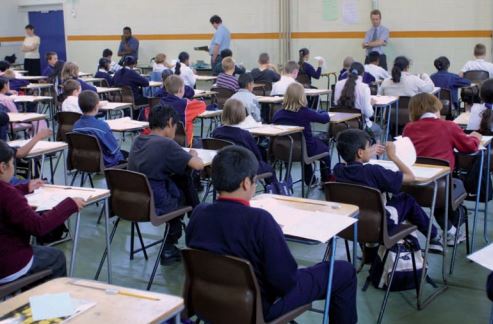
Assessment has a bad name. Last summer’s National Curriculum tests marking scandal was the last in a long line of negative stories about primary assessment – from children being hot-housed to pass “SATs” at the expense of curriculum teaching to teachers feeling constrained. Yet assessment is at the heart of good education practice, for without it teachers cannot know where a pupil is, or how to move him or her on.
Recent Government initiatives seek to build on this, and focus on putting teacher assessment of the pupils at the heart of the system, taking advantage of teacher’s professional skills, and supporting them as they seek to improve pupil attainment.
However, teachers need support in assessing their pupils – support in ensuring that the levels that they give are consistent, and demonstrating where progress has been made. Traditionally schools have achieved this by using a wide variety of assessment systems including NC tests,optional tests and data from assessment weeks. But teachers find that the data provided by such assessments are difficult to take advantage of in the classroom.
The Changing Assessment Landscape
National Curriculum Tests have been abandoned at key stage three, and the Qualifications and Curriculum Agency (QCA) is piloting Single Level testing through the Making Good Progress pilot in schools in 10 local authorities. This approach requires teachers to identify pupils to take a single level test when ready. These tests will be held at two points in the year – the idea being to remove the pressure from the end of key stage two tests and help schools to focus on progress rather than attainment. At the same time the government is pushing personalised learning, and launched the Assessment for Learning (AfL) Strategy last summer. This strategy seeks to support schools in implementing AfL, a strategy which seeks to use feedback from assessment to focus and enhance teaching and learning. Running through all of these initiatives is the desire for assessment to have an impact in the classroom.
Successful implementation of AfL is core to achieving this. Teachers should plan teaching based on progress data, explain learning objectives to children and use questioning, discussion and feedback during teaching. Activity such as peer and self assessment increase children’s engagement and review of their own learning. Last year’s AfL strategy has as its core aims that:
- Every child knows how they are doing and what they need to do to improve
- Every teacher is equipped to make judgements
- Every school has in place structured and systematic assessment systems
- Every parent knows how their child is doing (DCSF)